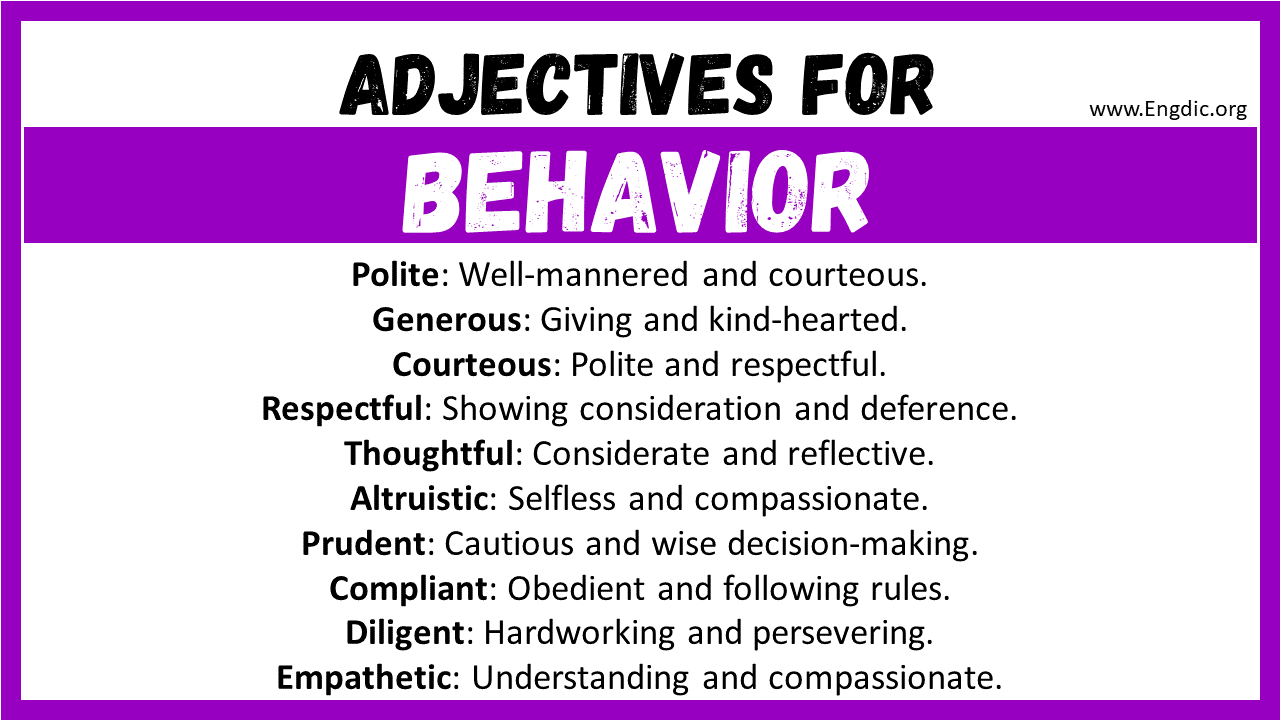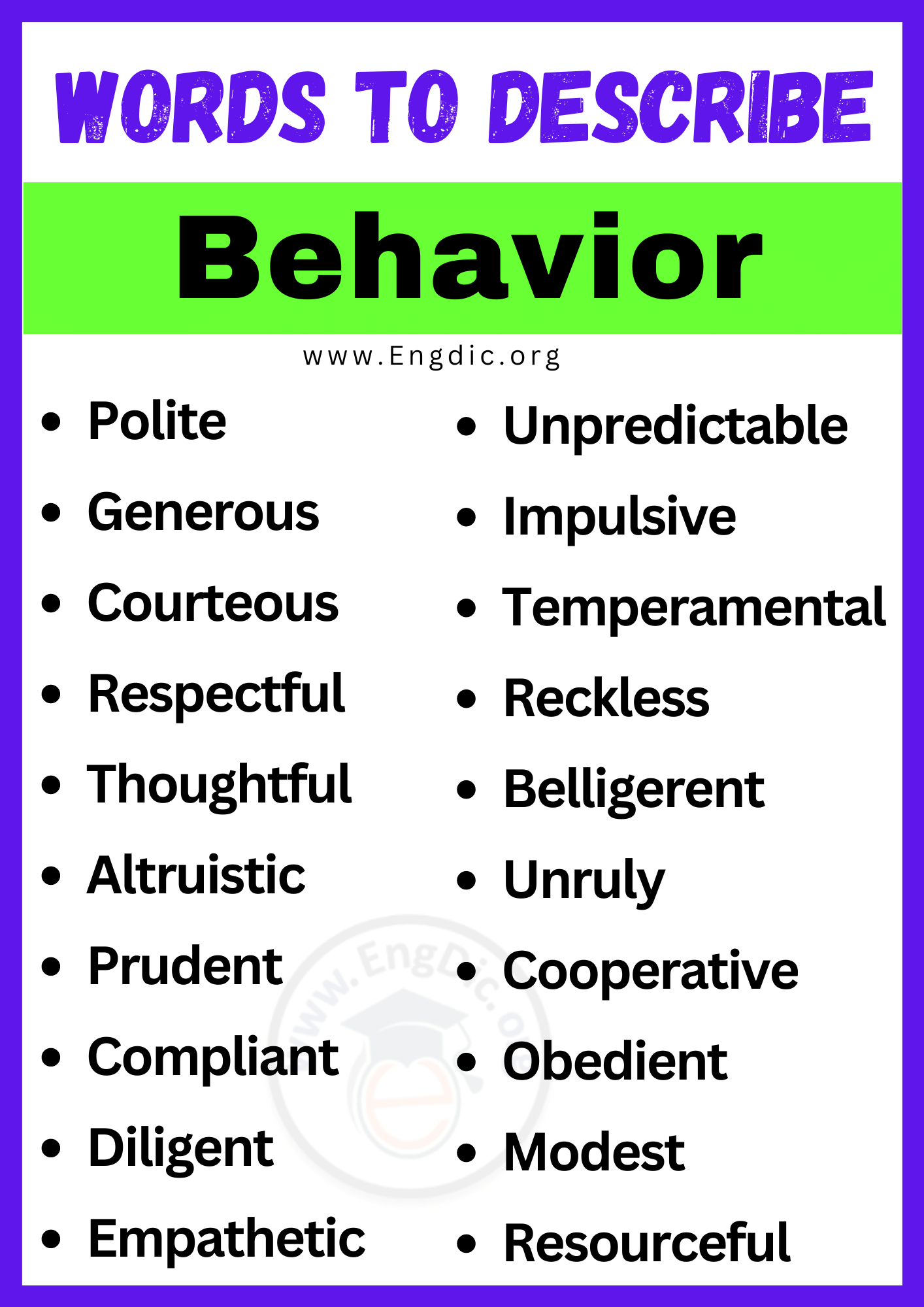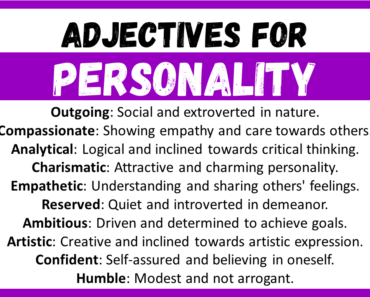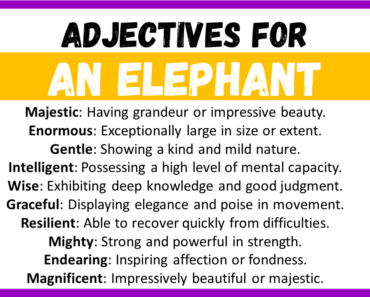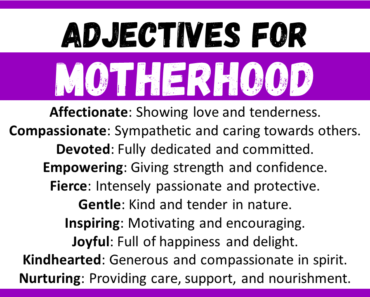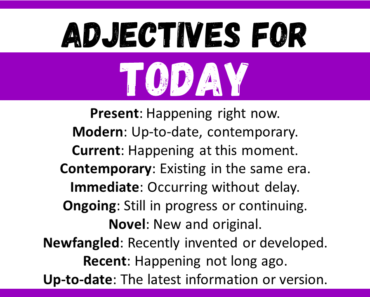Understanding human behavior is an intriguing aspect of our daily interactions. Behavior refers to the way individuals act and conduct themselves in various situations. It encompasses the actions, reactions, and responses that reflect a person’s character and emotions. Words to describe behavior play a crucial role in capturing the essence of how people behave.
From “compassionate” and “assertive” to “aloof” and “gregarious,” these words serve as valuable tools to articulate and comprehend the complexity of human conduct. Let’s explore the power of these descriptive words and how they help us navigate the intricacies of human behavior.
Adjectives for Behavior
Here are the 20 Most Popular adjectives for behavior:
- Polite
- Generous
- Courteous
- Respectful
- Thoughtful
- Altruistic
- Prudent
- Compliant
- Diligent
- Empathetic
- Unpredictable
- Impulsive
- Temperamental
- Reckless
- Belligerent
- Unruly
- Cooperative
- Obedient
- Modest
- Resourceful
Adjectives for Bad Behavior:
- Disruptive
- Aggressive
- Destructive
- Rude
- Dishonest
- Inconsiderate
- Irrational
- Rebellious
- Offensive
- Impulsive
Adjectives for Childlike Behavior:
- Innocent
- Curious
- Playful
- Imaginative
- Naive
- Energetic
- Carefree
- Trusting
- Innocuous
- Spontaneous
Adjectives for Animal Behavior:
- Instinctive
- Territorial
- Adaptive
- Social
- Aggressive
- Docile
- Predatory
- Communicative
- Migratory
- Courtship
Adjectives for Evil Behavior:
- Malevolent
- Cruel
- Sinister
- Ruthless
- Malicious
- Vindictive
- Deceitful
- Sadistic
- Manipulative
- Diabolical
Words to Describe Behavior with Meanings
- Polite: Well-mannered and courteous.
- Generous: Giving and kind-hearted.
- Courteous: Polite and respectful.
- Respectful: Showing consideration and deference.
- Thoughtful: Considerate and reflective.
- Altruistic: Selfless and compassionate.
- Prudent: Cautious and wise decision-making.
- Compliant: Obedient and following rules.
- Diligent: Hardworking and persevering.
- Empathetic: Understanding and compassionate.
- Unpredictable: Unforeseeable and erratic.
- Impulsive: Acting without forethought.
- Temperamental: Unpredictable and moody.
- Reckless: Careless and heedless of consequences.
- Belligerent: Hostile and aggressive.
- Unruly: Disorderly and difficult to control.
- Cooperative: Willing to work together.
- Obedient: Complying with authority or rules.
- Modest: Humble and unassuming.
- Resourceful: Skilled at finding solutions.
Example Sentences for Behavior Adjectives
- The polite gentleman held the door.
- She displayed a generous spirit, donating generously.
- Always be courteous to your elders.
- He was respectful of everyone’s opinions.
- Sarah’s thoughtful gesture touched his heart.
- Her altruistic nature led her to volunteer.
- Be prudent in making financial decisions.
- The team was compliant with safety regulations.
- He was diligent in his studies and work.
- Showing empathetic support, she listened attentively.
- His unpredictable behavior confused his friends.
- Don’t be impulsive, think before you act.
- His temperamental mood swings affected his relationships.
- Reckless driving can lead to accidents.
- The soldier adopted a belligerent stance.
- The unruly crowd caused chaos.
- The team’s cooperative efforts led to success.
- The dog was obedient, following commands promptly.
- Despite his talent, he remained modest.
- She displayed a resourceful approach to problem-solving.
Explore More Words:
Adjectives for Humility |Goth |Feedback
FAQ’s
How to describe behavior writing?
To describe behavior in writing, use descriptive adjectives and vivid language to portray actions, emotions, and character traits of individuals or entities.
What are the 4 types of behavior?
The four types of behavior are cognitive (thinking), affective (feeling), conative (doing), and adaptive (reacting to the environment).
What are behavioral habits?
Behavioral habits are repetitive actions or patterns of behavior that become ingrained through regular practice and may be performed automatically without conscious thought.
